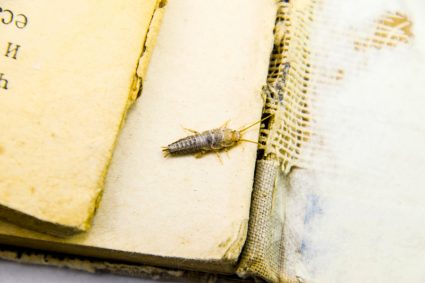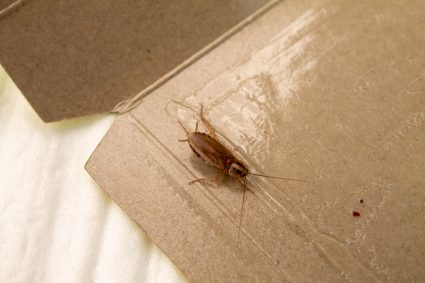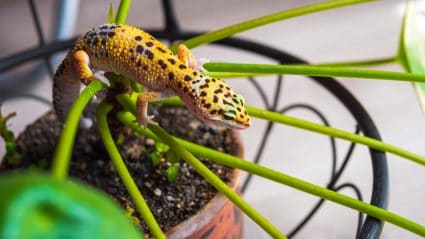
Starting a vegetable garden can be a rewarding experience, but it’s not without its challenges. Among these challenges are pests, which can wreak havoc on your hard-earned crops. However, there are various strategies you can implement to repel these unwanted guests. This comprehensive guide will cover everything you need to know about repelling pests from your vegetable garden, from understanding the most common pests to natural, eco-friendly ways to keep them at bay.
To repel pests from your vegetable garden, use environmentally friendly methods such as crop rotation, attracting beneficial insects, using physical barriers, insecticidal soap, and companion planting. Homemade remedies like soap spray insecticide and garlic spray insecticide can also be effective. Long-term strategies include maintaining a healthy garden ecosystem, attracting beneficial insects, and planting pest-resistant plants. Always remember to identify your pests before implementing control measures.
Common Pests in the Vegetable Garden
Identifying the pests in your vegetable garden is the first step towards managing them effectively. Some of the most common pests include Imported cabbageworm, Cabbage maggot, Colorado potato beetle, Cutworms, Flea beetles, Japanese beetles, Mexican bean beetles, Aphids, Leaf miners, Scale insects, Whiteflies, Earwigs, Fungus gnats, and Mealybugs. These pests can cause substantial damage to your garden if not controlled properly.
Environmentally Friendly Pest Control Methods
There are several environmentally friendly methods to repel pests from your vegetable garden. These include:
- Crop rotation: This strategy helps prevent plant-specific pests from establishing in your garden.
- Attracting beneficial insects: By planting flowers and herbs that attract beneficial insects like ladybugs and lacewings, you can control pests naturally.
- Using physical barriers: Fences and pest-repellent sprays can keep larger pests away.
- Insecticidal soap: This solution can control smaller pests like aphids without harming the environment.
- Companion planting: Certain plants deter pests when planted together. For example, onions and garlic act as insect deterrents when planted around other plants.
Identifying Pests in Your Garden
Identifying pests in your garden is crucial for implementing the right control measures. You can identify pests by observing their physical appearance, the damage they cause, and the host plants they infest. Websites like Savvy Gardening and Planet Natural provide photos and descriptions of common vegetable garden pests, which can help you identify the culprit.
Effective Homemade Remedies for Pest Control
Several effective homemade remedies can control pests in vegetable gardens. These remedies are natural, safe, and non-toxic, ideal for organic gardening. Some popular options include soap spray insecticide, garlic spray insecticide, vegetable oil spray, cayenne pepper, beer traps for snails and slugs, and Epsom salt.
Companion Planting for Pest Control
Companion planting can deter pests and promote growth. For example, basil repels houseflies and mosquitoes, while tomatoes and basil are natural companions in the garden. Other plants like marigolds, chrysanthemums, and petunias are known to repel various pests.
Preventative Measures for Pest Control
Preventative measures can help maintain a healthy, pest-free garden. These measures include encouraging healthy soil, choosing resistant varieties, planting in the right place, attracting beneficial insects, using physical barriers, applying organic pest control methods, practicing companion planting, and maintaining garden hygiene.
Long-Term Strategies for a Pest-Free Garden
Long-term pest control strategies include maintaining a healthy garden ecosystem, using companion planting, natural pest control recipes, attracting beneficial insects, using organic treatments, and planting pest-resistant plants.
Natural Ways to Prevent Pest Infestation
Natural pest prevention methods include companion planting, encouraging healthy soil, attracting beneficial insects, using physical barriers, hand-picking pests, using natural sprays, introducing beneficial animals, practicing crop rotation, and maintaining garden hygiene.
By implementing these strategies, you can create a more balanced ecosystem that naturally deters pests, maintain a healthy and productive vegetable garden, and enjoy the fruits of your labor without worry. Remember, every garden is unique, and what works for one might not work for another. Experiment with different methods to find what works best for your garden. Happy gardening!
Frequently Asked Questions
What flowers and herbs can attract beneficial insects?
Some flowers and herbs that attract beneficial insects include marigolds, cosmos, zinnias, sunflowers, dill, cilantro, and fennel. These plants attract insects like ladybugs, lacewings, and parasitic wasps that can help control pest populations.
What is companion planting and how does it work?
Companion planting is a method of growing plants together for mutual benefit. Some plants can deter pests from their companions, while others can enhance the growth and flavor of nearby plants. For example, planting basil near tomatoes can improve their flavor and also deter pests like mosquitoes and houseflies.
How does crop rotation help in pest control?
Crop rotation is the practice of growing different types of crops in the same area in sequential seasons. This method helps prevent the buildup of pests and diseases that can occur when the same crops are planted in the same location year after year.
What are the benefits of using homemade remedies for pest control?
Homemade remedies for pest control are natural, safe, and non-toxic, making them ideal for organic gardening. They are also cost-effective as they use ingredients you may already have at home.
What are some natural sprays I can use for pest control?
Some natural sprays for pest control include soap spray insecticide, garlic spray insecticide, and vegetable oil spray. These sprays can be made at home using simple ingredients and can effectively control pests without harming your plants or the environment.
What are some preventative measures I can take to avoid pest infestation?
Some preventative measures include maintaining healthy soil, choosing pest-resistant plant varieties, planting in the right location, attracting beneficial insects, using physical barriers like fences and netting, applying organic pest control methods, practicing companion planting, and maintaining good garden hygiene.








